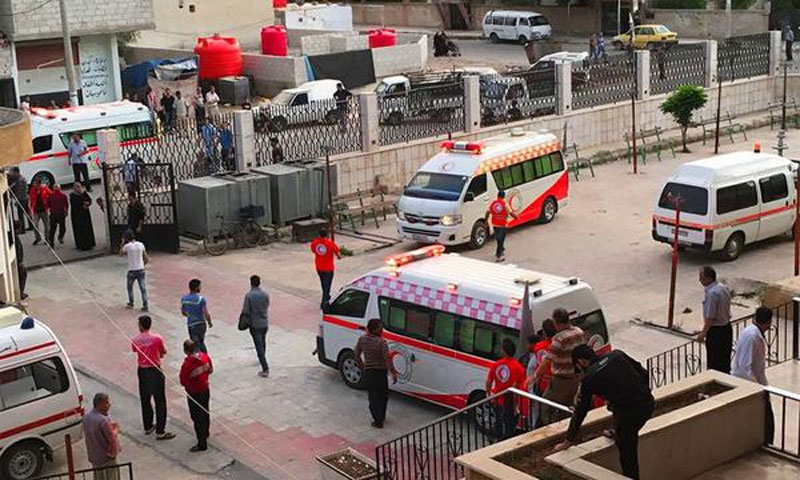



The Syrian regime followed a new economic policy to increase financial returns; it imposed restrictions on money orders and announced charges on cellphones. These changes enhanced the suffering of Syrian citizens, especially that the Syrian currency is collapsing and Syrian people’s salaries are already considered among the lowest wages paid around the world.
The steps mentioned above were not enough, so the Syrian regime decided to go beyond another red line; it decided to make a shift from free of charge to paid treatment. At this decision, the privatization of public hospitals became a reality, similar to that of Daraa National Hospital which started to offer paid treatment after it has been free of charge for a long time.
Daraa National Hospital is one of the most important hospitals in southern Syria. Formerly, it used to provide free of charge services to hundreds of thousands of citizens.
A medical source, who wishes to stay anonymous, told Enab Baladi, that despite the fact that the hospital’s conditions deteriorated massively when its interior turned into a battlefield in the first years of the revolution and that it lost dozens of its staff members, the hospital managed to function again and offered its services to the people in the area of Daraa al-Mahatta.
Paid treatment started officially a few weeks ago. In the beginning, a fee was imposed only on radiography, and then it was the turn of surgeries. Gradually, the fee was imposed on the different medical departments in the hospital, the source added.
The party to benefit from the returns is not yet obvious, according to the source, who explained that the fees constitute about 40 percent of that required by private hospitals. However, a declaration about the mechanisms to run these returns was not given, especially that the hospital’s budget is supposed to be determined in advance by the Ministry of Health under the government of the Syrian regime.
The source also considered that this step might be an attempt to change the reality of the health sector as a free of charge domain, though the regime used free of charge treatment as a pretext to promote itself, against the backdrop of the high expenses of medical treatment in neighboring countries.
Even though the regime was serious about these changes, the privatization of the health sector did not include its fighters and their families. Not only that, free treatment became a privilege along with education and employment in public establishments.
The source said that the change excludes Assad’s forces and their families; they can still receive a free of charge treatment, which might be considered as a new sign through which the Syrian regime attempts to enhance the concept of “state militarization.”
Abu Khaled Krad, a resident of Daraa al-Mahatta, said that Daraa National Hospital was “a sanctuary for those unable to afford private hospitals, which are not accessible to low and middle-income earners.”
He considered the regime’s privatization of public hospitals as “a new crime against the people, who are being completely besieged by the burdens of life,” especially that the charity associations, which cover the expenses of surgeries, are not always present.
“I checked one of the associations to help with my wife’s surgery. They told me that they stopped providing help because the support [they used to have] stopped,” according to Abu Khaled, who views the search for treatment as a new source of suffering.
Financial analysts consider that with the deterioration of the Syrian regime’s financial situation due to “war” which the rebels triggered to face its atrocities and the collapse of the tourism sector, which used to be a fundamental source for revenue, it started to search for new financial resources derived directly from the citizens’ pockets.
if you think the article contain wrong information or you have additional details Send Correction